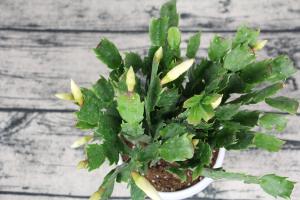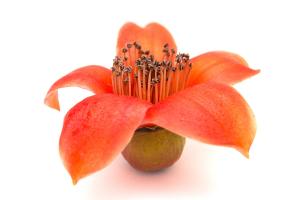Does Carnivorous Plant Reduce Productivity of Tomatoes?
Carnivorous plants, such as the Venus flytrap and the pitcher plant, are known for their unique ability to trap and digest insects and other small organisms. These plants have fascinated humans for centuries and are often kept as ornamental plants. However, some gardeners and farmers have raised concerns about the impact of carnivorous plants on the productivity of nearby crops, such as tomatoes. In this article, we will explore this issue and attempt to provide a clear answer.
What Are Carnivorous Plants?
Carnivorous plants are a group of plants that have evolved to obtain nutrients from small animals, such as insects and spiders. These plants are found in a variety of habitats, including bogs, wetlands, and tropical rainforests. They have developed special mechanisms to trap and digest their prey.
The Venus flytrap, for example, has two hinged leaves that snap shut when an insect touches tiny hairs on the surface of the leaves. The plant then secretes digestive enzymes that break down the insect's body, providing the plant with nutrients such as nitrogen and phosphorus. Other carnivorous plants, such as the pitcher plant, have elongated leaves that form a cavity filled with digestive enzymes.
How Do Tomatoes Grow?
Before we can explore the impact of carnivorous plants on tomato productivity, we need to understand how tomatoes grow. Tomatoes are a type of fruit that grows on a vine. The plants require a lot of sunshine, water, and nutrients to produce healthy fruit.
The roots of tomato plants absorb water and nutrients from the soil. The nutrients are transported up the stem to the leaves, where they are used to produce sugars through the process of photosynthesis. The sugars are then transported to the fruit, where they are used to fuel cell growth and division.
Do Carnivorous Plants Reduce Tomato Productivity?
There is no clear evidence to suggest that carnivorous plants reduce the productivity of nearby tomato plants. In fact, some studies have suggested that carnivorous plants can have a positive effect on soil health, which can benefit nearby crops.
Carnivorous plants rely on insects and other small organisms for nutrients, which means they are often found in nutrient-poor soils. However, by trapping and consuming the insects, these plants cycle nutrients back into the soil, which can benefit nearby plants.
In addition, some carnivorous plants, such as the sundew, produce a sticky substance on their leaves that can capture and neutralize pathogenic bacteria and fungi. This can help to prevent diseases from spreading in nearby crops.
Conclusion
While some gardeners and farmers may be concerned about the potential impact of carnivorous plants on the productivity of nearby crops, there is no clear evidence to suggest that these plants are harmful to tomato plants. In fact, they may even be beneficial due to their ability to improve soil health and prevent the spread of disease. As with any plant, it is important to consider factors such as sunlight, water, and nutrient availability when growing tomatoes, but there is no need to fear the presence of nearby carnivorous plants.

 how many times do yo...
how many times do yo... how many planted tre...
how many planted tre... how many pine trees ...
how many pine trees ... how many pecan trees...
how many pecan trees... how many plants comp...
how many plants comp... how many plants can ...
how many plants can ... how many plants and ...
how many plants and ... how many pepper plan...
how many pepper plan...





























